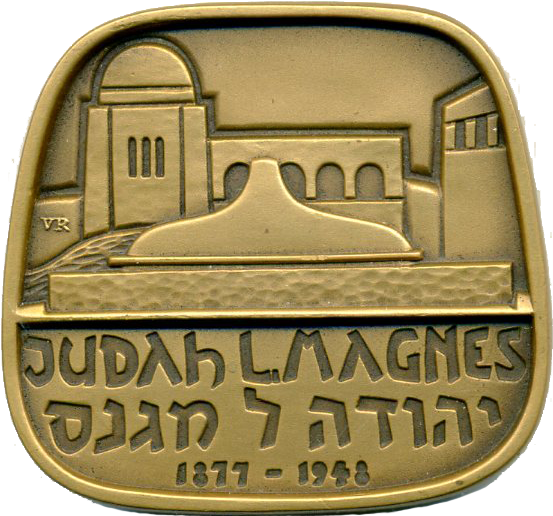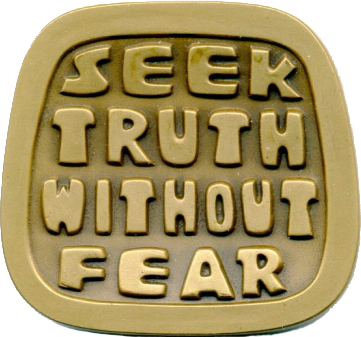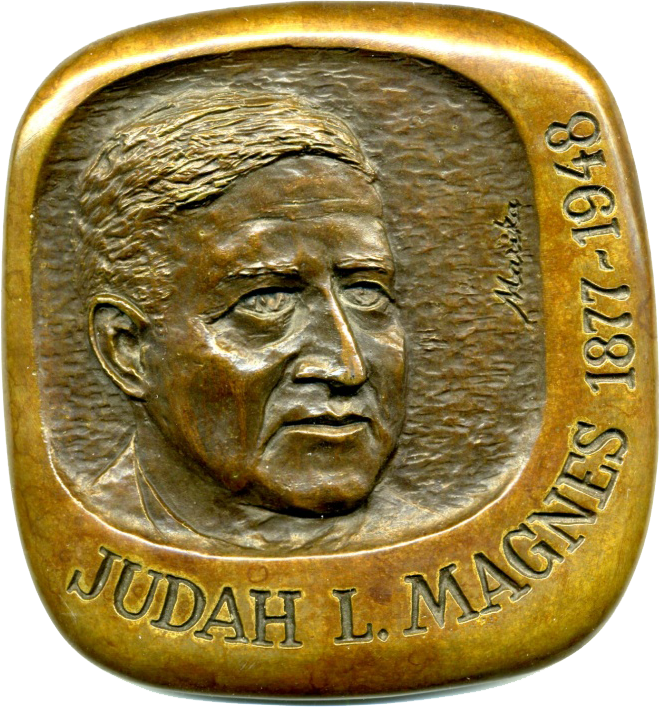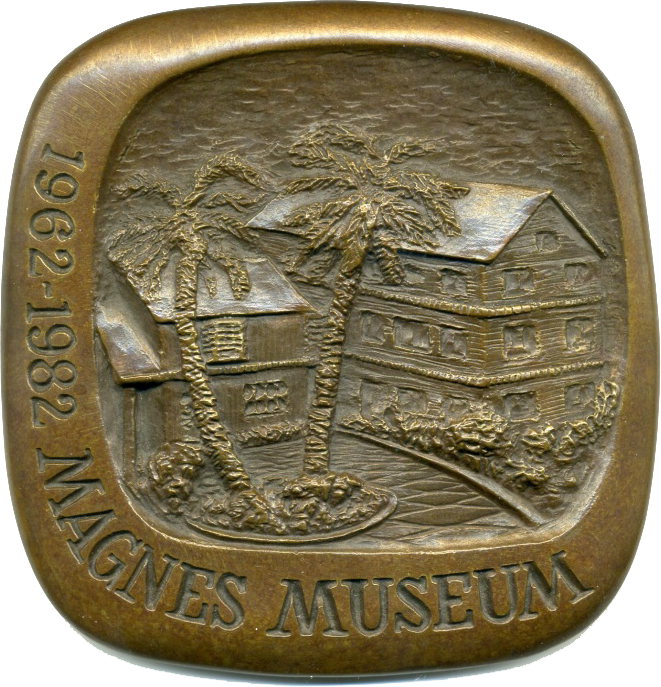 |  |
Magnes Museum 20th Anniversary medal by Marika Somogyi
Judah L. Magnes medal designed by Victor Ries, struck by Medallic Art Company in quantities of 585 bronze, 265 pure silver, and about 8 gold-plated pure silver. Obverse: Library of Hebrew University and Shrine of the Book; JUDAH L. MAGNES (English and Hebrew), VR, 1877-1948. Reverse: SEEK TRUTH WITHOUT FEAR. 46 x 45.
Judah Leon Magnes was born in San Francisco, and grew up in Oakland, California. He later became the first native Californian to receive a rabbinical degree from the Hebrew Union College in Cincinnati. Magnes went on to serve at Temple Israel in Brooklyn (1904) and at Temple Emanu-El in New York City (1908), one of the most influential positions in American Reform Jewry. A few years later, Magnes headed the conservative Congregation B’nai Jeshurun.
In 1909, Magnes founded the Kehillah, a union of diverse Jewish communal organizations in New York City. He remained its president during the entire time of its existence, through 1922, and is credited with changing the emphasis from charities to social work. With seemingly boundless energy, Magnes also helped to found the Yiddish daily “Der Tag,” the Society for the Advancement of Judaism, the American Civil Liberties Union, and the Joint Distribution Committee. He was Secretary of the Federation of American Zionists and a lifelong friend of Henrietta Szold, with whom he helped turn a small women’s social group into the world’s largest Zionist organization — Hadassah.
Probably Judah L. Magnes’ greatest work was done on behalf of the Hebrew University in Jerusalem, of which he was a founder and the first president. Dr. Magnes is given much of the credit for making the University the world-renowned institution that it is today. Magnes was an outspoken leader in the campaign for the establishment of a Jewish homeland. His compassion for people — all people — led him to appeal for a bi-national state of Jews and Arabs. He has been called the “Jewish Gandhi” because of his constant work on behalf of both independence and harmony in the Holy Land. Just before the United Nations made its momentous decision establishing the State of Israel, Magnes spoke before the world body. Unfortunately, he became ill shortly after, and was buried in his beloved Jerusalem.
 |  |